The Numbers Game: Why Everything You Know About Football is Wrong
£9.60£10.40 (-8%)
Discover football’s astonishing hidden rules in The Numbers Game by Chris Anderson and David Sally
*Fully updated with a new World Cup chapter*
Football has always been a numbers game: 4-4-2, the big number 9 and 3 points for a win. But what if up until now we’ve been focusing on the wrong numbers? What if the numbers that really matter, the ones that hold the key to winning matches, are actually 2.66, 53.4, 50/50, and 0 > 1? What if managers only make a 15% difference? What if Chelsea should have bought Darren Bent?
In this incisive, myth-busting book, Chris Anderson, former goalkeeper turned football statistics guru, and David Sally, former baseball pitcher turned behavioural economist, show that every shred of knowledge we can gather can help us to love football and understand it even more. You’ll discover why stopping a goal is more valuable than scoring one, why corners should be taken short, and why it is better to improve your worst player than to buy a superstar.
You’ll never play, or watch, a game of football in quite the same way again.
The Numbers Game is essential reading for football fans everywhere and will also appeal to readers who loved Moneyball and Freakonomics.
Read more

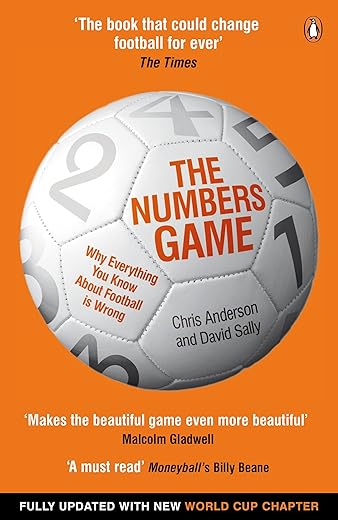
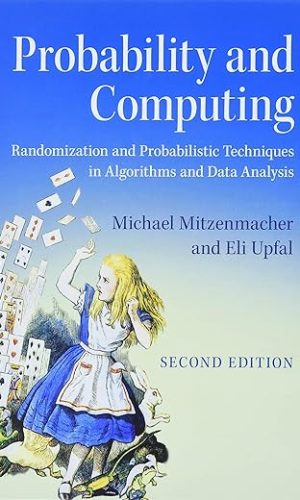
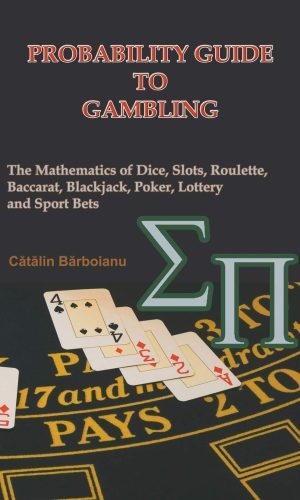
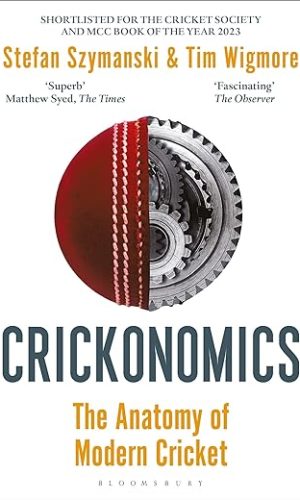

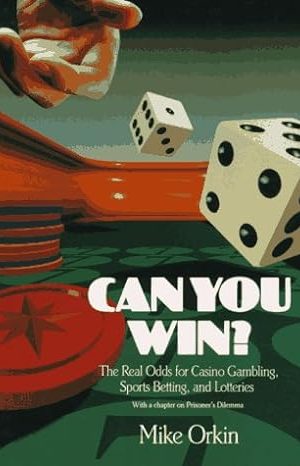

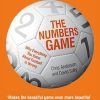
by P. G. Harris
One might surmise that the final corollary to Chris Anderson and David Sally’s Numbers Game is that chance may become, in future, an even greater determining factor in the outcome of top level soccer matches.
In their fascinating book, they give a history of the use of statistics as well as providing an analysis of where the game is going, and what constitutes winning strategies and tactics. In this vision of the future, the top clubs are similarly wealthy, understand the value of defence, appreciate that not turning over the ball is the key to success and concentrate on maximising the ability of their weakest player. The difference between the top teams is then going to come down to a sublime moment of skill, an insight from a manager which gives that sliver of “edge” or most often, pure luck.
On the way to their various conclusions, the authors provide some entertaining and interesting moments. They explain the roots of the long ball game from analysis carried out by a post war accountant, and also demonstrate why his theories were flawed. We see how Stoke City under Tony Pulis survived by adopting an approach radically different from what any other club was doing. Alex Ferguson is described provocatively as being only as successful as should have been expected from a club that wealthy. “It can be harder to play against ten men” is comprehensively debunked.
Overall, Anderson and Sally argue their case convincingly, although the resistance they expect from vested interests within the game is depressing. Their statistical arguments are well presented and generally persuasive. On the odd occasion where their arguments seem a little dodgy, it is probably fair to give them the benefit of the doubt and assume that the weakness is in the explanation rather than the method.
In the end, I was convinced that their approach was sound, but also inherent in their belief that we will see greater use of analytics, is the knowledge that there will always be a maverick out there who will buck the trend and win matches through being radically unconventional.
A fascinating read if you like the idea of there being something more than blood and thunder to football. If, on the other hand, you think that England’s fortunes can be turned around by a great manager who can instil passion into the players, you’ll probably find an awful lot to disagree with.
by P. Fairburn
I loved the whole Moneyball story from the US, and this book does have plenty of interesting insights.
It’s time that football used reason and evidence. I think ‘gut’ feelings in football are as unreliable as in much of the rest of business, sport and life. (We see what we want to see / confirmation bias, etc., etc..)
But… as another reviewer has said, there’s a nagging feeling that some of the correlations are the result of other uncontrolled variables.
The authors do make it clear that there isn’t one ‘best’ formula for all teams; that managers must play to their team’s strengths. But that feels like an excuse for (for example) Wigan being relegated in spite of the book praising Martinez and his methods there.
Having said all that I enjoyed the book, in particular the analysis of why winning corners isn’t much cause for celebration.
So – it’s not quite 5 stars. If you think that a bit of intelligence and ‘stats’, could improve your team – I recommend it.
by BB
I don’t think I can beat William Jordan’s review.
However, enjoyable but not as revelatory as the blurb suggests. Reinforces that football is a game of margins and that the difference between top and bottom of the Premiership is a culmination of these margins, so it should be no suprise that the team at the bottom are still capable of beating the team at the top if the margins move on a given day. Not enough focus on defence, too much focus on strikers, an unwillingness to deal with the poorest player in your team – there are bits of this book that pretty much predicted England’s dire performance in the World Cup. Perhaps somebody could give Uncle Roy a copy of this. Although, the updated chapter of this book on the World Cup doesn’t actually add much – if you own an older version you aren’t missing any revelations there.
Interesting how seldom footballers ever touch the ball – especially if playing Stoke it seems!